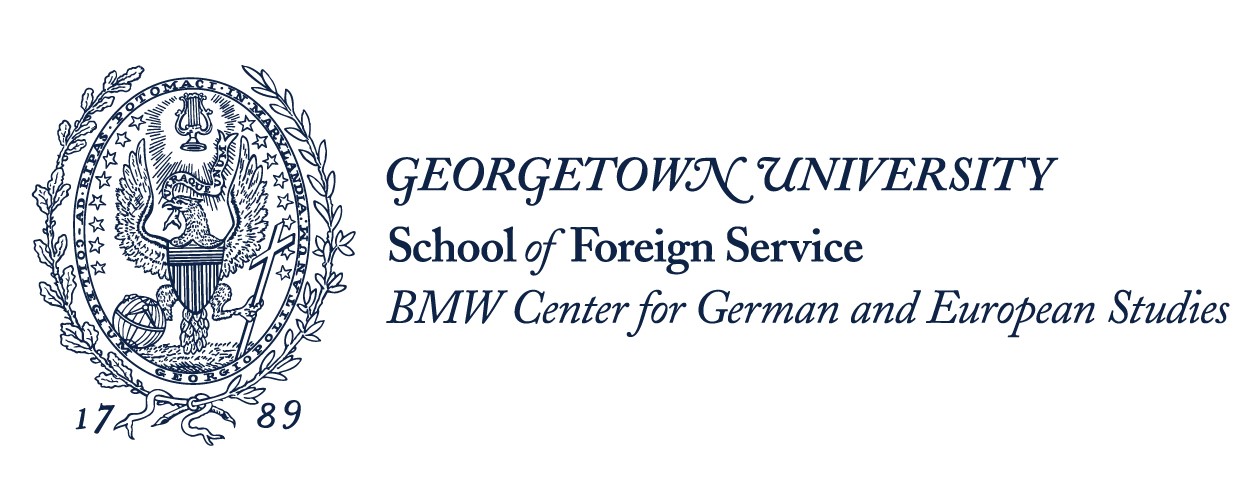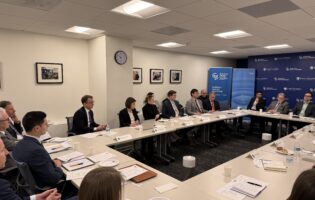
NATO via Flickr
Russia’s Threat to the Post-Cold War Security Order
With Russia massing its forces on the border of Ukraine and engaging in other efforts to destabilize that country, the security situation in Europe has deteriorated to a state not seen in decades. Amid intensive diplomacy in recent weeks, there is substantial uncertainty over what Vladimir Putin’s intentions are and whether he ultimately will choose military action. The transatlantic community has reiterated that any Russian aggression would be met with drastic consequences, but it has been accompanied by intense scrutiny of national positions and questions about Western solidarity, with particular focus has been devoted to the positions of the United States and Germany. Will Putin invade? Does he seek regime change with a Kremlin-friendly government in Kyiv? How robust would a Western response be? This webinar will bring together leading experts to shed light on this acute crisis and to provide insight into the options the transatlantic community has in the weeks and months to come.
Panelists:
Dr. Alina Polyakova, President and CEO, Center for European Policy Analysis (CEPA); Adjunct Professor of European Studies, Johns Hopkins University’s School of Advanced International Studies (SAIS)
Dr. Angela Stent, Senior Advisor and Director Emerita, Center for Eurasian, Russian, and East European Studies, Georgetown University
Amb. Peter Wittig, Rohwedder-Horvath Ambassador-in-Residence, Georgetown University; former German Ambassador to the United States
Moderator:
Jeff Rathke, President, AGI
This event will convene via Zoom. Contact Ms. Elizabeth Hotary at ehotary@aicgs.org with any questions.
Dr. Alina Polyakova is President and CEO of the Center for European Policy Analysis (CEPA) as well as an adjunct professor of European studies at the Johns Hopkins University’s School of Advanced International Studies (SAIS). Prior to joining CEPA, Dr. Polyakova was the Founding Director for Global Democracy and Emerging Technology at the Brookings Institution and prior to that served as Director of Research for Europe and Eurasia at the Atlantic Council. She has held numerous prestigious fellowships, including at the National Science Foundation, the Woodrow Wilson International Center for Scholars, and the Fulbright Foundation, among others. She also serves on the board of the Free Russia Foundation and the Institute of Modern Russia. Dr. Polyakova holds a Ph.D. and MA in Sociology from the University of California, Berkeley, and a BA in Economics and Sociology from Emory University.
Dr. Angela Stent is the Director Emerita of the Center for Eurasian, Russian and East European Studies and Professor Emerita of Government and Foreign Service at Georgetown University. She remains a Senior Advisor to CERES. Her latest book, Putin’s World: Russia Against the West and with the Rest (2019), analyzes present-day Russian motives on the world stage. She is the author of The Limits of Partnership: US-Russian Relations in the Twenty-First Century (2014), for which she won the American Academy of Diplomacy’s Douglas Dillon prize for the best book on the Practice of America Diplomacy. She is also a Senior Fellow (non-resident) at the Brookings Institution and co-chairs its Hewett Forum on Post-Soviet Affairs. From 2004-2006, she served as National Intelligence Officer for Russia and Eurasia at the National Intelligence Council. From 1999 to 2001, she served in the Office of Policy Planning at the U.S. Department of State.
Peter Wittig is a five-time Ambassador looking back at an almost four-decade-long career in the German Diplomatic Service. He is currently a Fisher Fellow at the Harvard Kennedy School. Wittig is based in Berlin, where he is a frequent media commentator and advises a major German company as “Senior Advisor Global Affairs.” In the early nineties, Wittig served as Private Secretary to two Foreign Ministers at a time when the international system changed fundamentally. Most recently he was Germany’s Ambassador to the United Nations in New York (2009 – 2014) representing his country in the UN Security Council. He was also President of the UN Peacebuilding Commission. From 2014 to 2018 he served as Ambassador to the United States of America working both with the Obama and the Trump administration. Afterward, he was Ambassador to the United Kingdom (2018 – 2020) being closely involved in the Brexit process. Before joining the Foreign Service he studied History, Political Science, and Law at the Universities of Bonn, Freiburg, Canterbury, and Oxford. He taught “History of Ideas” as a Junior Professor at the University of Freiburg. He has published numerous articles on international affairs.
Support for this event provided by the AGI Foreign and Security Policy Program. It is presented in partnership with the BMW Center for German and European Studies, Georgetown University.








